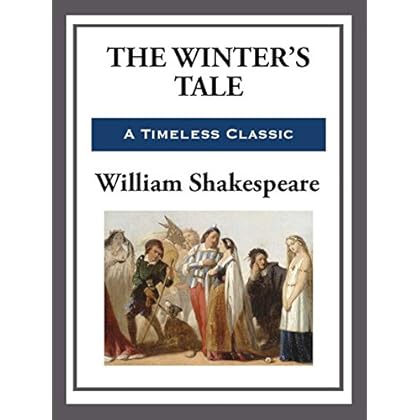The Winter's Tale (The Contemporary Shakespeare Series Book 21)
Category: Kindle Store,Kindle eBooks,Literature & Fiction
The Winter's Tale (The Contemporary Shakespeare Series Book 21) Details
Running an emotional gamut from betrayal and broken hearts to romance and reconciliation, this 1611 tragicomedy begins with the tyrannical actions of a jealous king, whose baseless suspicions destroy his own family. The play's second half takes place 16 years later, when the lively plot takes a lighthearted turn, abounding in song and dance.

Reviews
WINTER'S TALES (1942) is a collection of eleven stories, translated into English by their Danish author Karen Blixen (1885-1962), who wrote under the pen name Isak Dinesen. Seven of these tales are short stories, and four of them are novelettes. Following their sequence in this book, they are "The Young Man with the Carnation," SORROW-ACRE, "The Heroine," "The Sailor-boy's Tale," "The Pearls," "The Invincible Slave-owners," THE DREAMING CHILD, ALKMENE, "The Fish," PETER AND ROSA, and "A Consolatory Tale."Many of these stories are set in the 19th century or earlier, and many involve people who suffer from strange bouts of depression and/or have extremely warped outlooks on the world. The first and last stories concern the problems of writers, and one story ("The Sailor-boy's Tale") involves a woman with supernatural powers.For many reasons, the writing style of these stories is fairly challenging: Blixen's sentences are often long, occasionally contain words or phrases or quotations in French or German or Latin, and frequently include English words that most readers probably have never heard or seen before (e.g., "havelock," "cupular," "carytides," "coralline," "cariole," "triumphator," "chrysoprases," and "convive"). Readers also need to be familiar with European history and with the Bible. Incidentally, several times Blixen used the word "shadow" when she meant "refection" (perhaps Danish has just one word to cover both kinds of images).Blixen's prose style is often poetic, decorated with dozens of similes and long passages that contain a great deal of alliteration and assonance (e.g., "In the dripping-wet woods, the young leaves were still soft and slack, silky, less like leaves than like petals, and drooping in the sweet forest-air like sea-weeds in deep water").Very frequently Blixen portrays people with unusual mental states in great depth and with remarkable imaginative clarity. In many scenes in her stories this is vitally important to show us readers precisely how and why various characters are misunderstanding each other. Even in the few stories that seem relatively slight, such passages provide a kind of "value added" that makes them difficult to dismiss.Currently my own favorites in this collection are "The Sailor-boy's Tale," "The Fish" (a fictional prequel to the murder of a real-life Danish king in 1286), PETER AND ROSA (a bittersweet tale of young love), "A Consolatory Tale" (in which a man snaps his friend out of deep depression), and especially "The Heroine" (in which a young French woman stands up to the churlish and dangerous sexual harassment of a German officer at the beginning of the Franco-Prussian War in 1870).Two of this book's stories seemed rather puzzling for different reasons. SORROW-ACRE is a perculiar story that was structured to resemble a funnel with the very narrow hole at its ending. It begins with a long section focused on a nephew who visits his newly married uncle, its middle shifts the focus to that uncle's decision about the harvesting of a field of grain, the three pages just before the end focus on the harvester, and the very short closing paragraph focuses briefly on what people in the distant future thought--but didn't know--about that field. In contrast to this, ALKMENE is the only totally first-person narrative in this book (several other stories do have people telling stories to each other), and its male narrator may not provide us with enough information to understand WHAT has happened to Alkmene, the wealthy young woman he once had considered proposing to. (The Internet abounds with widely different interpretations of Alkmene's final mindset and motivations.) I plan to reread and reconsider these two stories in the next couple monthsIn my judgment, weighing the collection's many factors, I would give it a solid "B+" grade.


